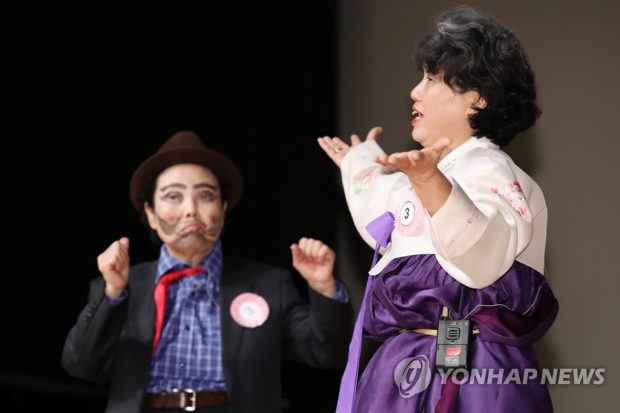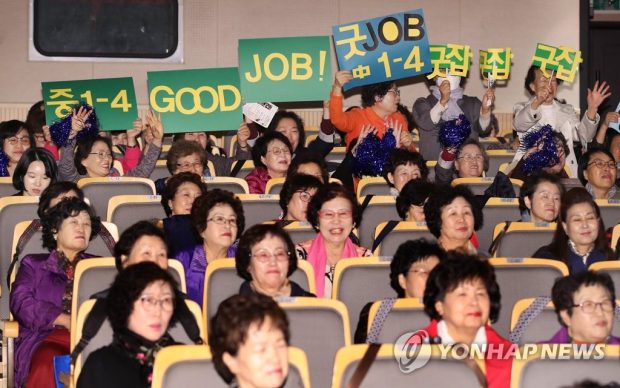
South Korean ‘ajumma’ gain confidence with English

Seoul: “Hi everyone,” a middle-aged woman donning an emerald-colored ballroom gown and a fancy updo hairstyle chirped at hundreds of middle-aged and elderly women.
“Hi,” the excited crowd echoed back.
“Welcome to the 18th English Speech Contest of Ilsung Middle and High School. I’m Kim Hyun-ja, first grade of high school. I’m very glad to be here … I’m afraid of making mistakes,” the middle-aged emcee said slowly but confidently.
Hundreds of students at Ilsung Middle and High School and their families gathered this week for the annual English speech contest the school has hosted for nearly two decades.
The school, located in western Seoul, is an all-woman academic institution that specializes in education for women who are studying belatedly due to various reasons.
Roughly 1,000 students whose average age is 63, including one student who is 87 years old, study middle school and high school courses at the school, which is officially recognized as an educational institution by the government.
“We provide education to women who missed out on learning due to poverty or the fact they are women … A wise person once said, ‘Not learning is like walking a dark night road.’ Please get on the train of learning and get rid of the frustration and sadness that you could not share with anyone and enjoy the bright and energetic joy (of learning),” the school’s website says.
Established by people from North Korea’s northernmost province of North Hamgyong, it first started off as an evening course for laborers in 1952 during the 1950-53 Korean War.

Over 56,000 students have graduated in the past six decades, including those who made headlines as the country’s most elderly college entrance exam applicants.
As its internet domain “ajumma school” suggests, most of the students are ajumma, the Korean term for middle-aged and elderly women that have come to symbolize next-door aunties and grannies.
YONHAP


